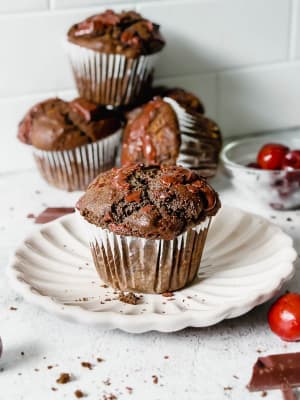Aspartame: More Bitter Than Sweet

Aspartame: More Bitter Than Sweet
First discovered in 1965 and approved for use in soft drinks in 1983, there is nothing new about this artificial sweetener that appears in over 6,000 products.
You might see it as NutraSweet, SugarTwin, or Equal. In soda, it goes by the antiquated codename Diet. Whatever its label, it’s aspartame - and it becomes more outrageously popular every day.
First discovered in 1965 and approved for use in soft drinks in 1983, there is nothing new about this artificial sweetener that appears in over 6,000 products.
However, more recent concerns about sugar consumption, and policies to limit its impact, have driven the perpetual skyrocketing of aspartame consumption which seems to show no signs of slowing down. It’s not surprising; as sugar gets more vilified in popular consciousness and legislative policies, the increase in natural and synthetic substitutes has risen.
Aspartame, an industry surfer with decades of experience, is very much riding that wave. It’s logical to predict that global consumption will only explode further as more international markets move away from sugar. In the UK, Diet Coke sales surpassed those of regular Coke in 2018, a testament to shifting cultural tides and the epic scale of aspartame intake across the globe.

A Saccharine Miracle
Perhaps aspartame was one of the earliest raindrops of the "pleasure without consequences” storm that we take for granted now, as we sip on a decaffeinated, dairy-free, sugar-free latte. We are undeniably living in the ultimate era of having your cake and eating it too.
The dawn of the world’s favourite sucrose replacement in the 1980s must have seemed almost too good to be true. All the sweetness, with essentially zero calories?
So, what’s the catch?
Depending on who you talk to, there isn’t one. Especially when the alternative, that boogeyman white sugar, connotes unwanted weight gain, diabetes, and compromised immunity. Indeed, advocacy websites such as aspartame.org have whole pages dedicated to the benefits of aspartame, which on cursory inspection are really just the benefits of avoiding sugar.

Bitter Rivals
Anyone naturally curious to get to the bottom of the issue will immediately encounter a polarized bifurcation of heated opinions, the whole issue made murky by partisan wellness politics. While the ‘crunchy’ world of natural health aficionados is predictably and categorically biased against synthetic chemicals and food additives, there is a competing edifice of industry-associated science dedicated to repeating the mantra that Aspartame has been unambiguously proven safe.
One such review, co-authored by NutraSweet representatives, found that not only is the sweetener fully in line with healthy living, but in its analysis of available published literature, concluded that “there are no unresolved questions regarding its safety under conditions of intended use.” In other words, we know everything there is to know, and we can all just stop talking about this. Case closed.
And yet, the conversation seems to stubbornly continue, as more science emerges year after year with much less definitive conclusions. Pundits on both sides of the aspartame infinity war agree that a shortage of science isn’t the issue; it’s not a lack of data, but of consensus on what it all means.
The Dirt
It’s worth pointing out that the best case against the safety of aspartame is not to be found on blogs, opinion pieces, or social media, but in peer-reviewed journals. For anyone who cares to look, there is an abundance of research on potential harms, including several human studies, connecting aspartame to seizures (1, 2), brain, cognitive and behavioural changes (1, 2, 3), headaches and migraines (1, 2, 3, 4), unfavourable changes in the gut microbiome (1, 2, 3, 4), neurochemical and hormonal imbalances (1, 2, 3), congenital disorders (1, 2, 3) and more.
Political From The Beginning
It was actually due to a concern over brain tumours in rats that caused the FDA to initially withhold approval of the sweetener. That was until a collaboration between Donald Rumsfeld and Ronald Reagan led to reapplication and approval in 1981, very shortly after Reagan’s inauguration. At that time, Rumsfeld was both the CEO of G.D. Searle, the Chicago pharmaceutical company that discovered aspartame, and a member of Reagan’s transition team. The FDA approval was transformative for Searle’s bottom line, and under Rumsfeld’s stewardship the company posted a record 120 million dollar profit in 1982.

“C’mon, is it really a big deal?”
It’s worth pointing out that safe and beneficial are not the same thing. If the pro-aspartame voices are 100 per cent right, and it does not cause the wide range of negative consequences reported in decades of research, diet soda drinkers may be able to rejoice that potential harms are nothing but empty hysteria. It’s FDA approved and very well studied, after all.
If, on the other hand, aspartame critics are even partially right, there may be a lot more at stake. But since no one, anywhere, is making any real argument for aspartame’s benefit, apart from the logical non-sequitur of pointing to harms of sugar and saying “it’s not that,” then one may be justified in asking why anyone really needs aspartame in their life at all. If our primary line of questioning is whether or not it’s really that bad for you, we are already tacitly admitting that there is nothing to gain, and only, at best, a debatable degree of loss.
Aspartame Products. Aspartame: Separating Fact From Fiction. (n.d.). Retrieved March 3, 2023, from https://aspartame.org/aspartame-products/#.VNO3MFXF_w4 Benefits of Aspartame. Aspartame: Separating Fact From Fiction. (n.d.). Retrieved March 3, 2023, from https://aspartame.org/benefits-of-aspartame/
Butchko, H. H., Stargel, W. W., Comer, C. P., Mayhew, D. A., Benninger, C., Blackburn, G. L., de Sonneville, L. M. J., Geha, R. S., Hertelendy, Z., Koestner, A., Leon, A. S., Liepa, G. U., McMartin, K. E., Mendenhall, C. L., Munro, I. C., Novotny, E. J., Renwick, A. G., Schiffman, S. S., Schomer, D. L., … Trefz, F. K. (2002). Aspartame: Review of safety. Regulatory Toxicology and Pharmacology, 35(2). https://doi.org/10.1006/rtph.2002.1542
Camfield, P. R., Camfield, C. S., Dooley, J. M., Gordon, K., Jollymore, S., & Weaver, D. F. (1992). Aspartame exacerbates EEG spike-wave discharge in children with generalized absence epilepsy: a double-blind controlled study. Neurology, 42(5), 1000–1003. https://doi.org/10.1212/wnl.42.5.1000
Choudhary, A. K., & Pretorius, E. (2017). Revisiting the safety of Aspartame. Nutrition Reviews, 75(9), 718–730. https://doi.org/10.1093/nutrit/nux035
Choudhary, A. K., & Lee, Y. Y. (2018). Neurophysiological symptoms and aspartame: What is the connection?. Nutritional neuroscience, 21(5), 306–316. https://doi.org/10.1080/1028415X.2017.1288340
Choudhary, A. K., & Lee, Y. Y. (2018). The debate over neurotransmitter interaction in aspartame usage. Journal of clinical neuroscience : official journal of the Neurosurgical Society of Australasia, 56, 7–15. https://doi.org/10.1016/j.jocn.2018.06.043
Czarnecka, K., Pilarz, A., Rogut, A., Maj, P., Szymańska, J., Olejnik, Ł., & Szymański, P. (2021). Aspartame—true or false? narrative review of safety analysis of general use in products. Nutrients, 13(6), 1957. https://doi.org/10.3390/nu13061957
Fleming, M. (2018, July 15). Diet Coke Sales Overtake Classic Coke as the soft drinks giant navigates the sugar tax. Marketing Week. Retrieved March 3, 2023, from https://www.marketingweek.com/diet-coke-sales-overtake-classic-coca-cola/
Gennet, R. (2011, May 25). Donald Rumsfeld and the strange history of Aspartame. HuffPost. Retrieved March 3, 2023, from https://www.huffpost.com/entry/donald-rumsfeld-and-the-s_b_805581
Humphries, P., Pretorius, E., & Naudé, H. (2007, August 8). Direct and indirect cellular effects of aspartame on the brain. Nature News. Retrieved March 3, 2023, from https://www.nature.com/articles/1602866
Koehler, S. M., & Glaros, A. (1988, February). The effect of aspartame on migraine headache. Headache: The Journal of Head and Face Pain. Retrieved March 3, 2023, from https://headachejournal.onlinelibrary.wiley.com/doi/abs/10.1111/j.1365-2524.1988.hed2801010.x
Lawless, K. (2017, April 19). The story of how fake sugar got approved is scary as hell. VICE. Retrieved March 3, 2023, from https://www.vice.com/en/article/nzpbkx/the-story-of-how-fake-sugar-got-approved-is-scary-as-hell
Lawrence, F. (2005, December 15). Safety of artificial sweetener called into question by MP. The Guardian. Retrieved March 3, 2023, from https://www.theguardian.com/politics/2005/dec/15/foodanddrink.immigrationpolicy
Lipton, R. B., Newman, L. C., Cohen, J. S., & Solomon, S. (1989). Aspartame as a Dietary Trigger of Headache. Headache: The Journal of Head and Face Pain. Retrieved March 3, 2023, from https://headachejournal.onlinelibrary.wiley.com/doi/abs/10.1111/j.1526-4610.1989.hed2902090.x
Lindseth, G. N., Coolahan, S. E., Petros, T. V., & Lindseth, P. D. (2014). Neurobehavioral effects of aspartame consumption. Research in nursing & health, 37(3), 185–193. https://doi.org/10.1002/nur.21595
Malkan, S. (2022, March 25). Aspartame: Decades of science point to serious health risks. U.S. Right to Know. Retrieved March 3, 2023, from https://usrtk.org/sweeteners/aspartame_health_risks/
Mueller, N. T., Jacobs, D. R., Jr, MacLehose, R. F., Demerath, E. W., Kelly, S. P., Dreyfus, J. G., & Pereira, M. A. (2015). Consumption of caffeinated and artificially sweetened soft drinks is associated with risk of early menarche. The American journal of clinical nutrition, 102(3), 648–654. https://doi.org/10.3945/ajcn.114.100958
Palmnäs, M. S. A., Cowan, T. E., Bomhof, M. R., Su, J., Reimer, R. A., Vogel, H. J., Hittel, D. S., & Shearer, J. (2014). Low-dose aspartame consumption differentially affects gut microbiota-host metabolic interactions in the diet-induced obese rat. PLOS ONE. Retrieved March 3, 2023, from https://journals.plos.org/plosone/article?id=10.1371%2Fjournal.pone.0109841
Searle, G. D. (n.d.). Great American business leaders of the 20th Century: Donald H. Rumsfeld. Harvard Business School. Retrieved March 3, 2023, from https://www.hbs.edu/leadership/20th-century-leaders/details?profile=donald_h_rumsfeld
Sharma, A. K., Azad, M. B., & de Souza, R. J. (2016, July 1). Association Between Artificially Sweetened Beverage Consumption During Pregnancy and Infant Body Mass Index. JAMA Pediatrics . Retrieved March 3, 2023, from https://jamanetwork.com/journals/jamapediatrics/article-abstract/2521471
Suez, J., Korem, T., Zeevi, D., Zilberman-Schapira, G., Thaiss, C. A., Maza, O., Israeli, D., Zmora, N., Gilad, S., Weinberger, A., Kuperman, Y., Harmelin, A., Kolodkin-Gal, I., Shapiro, H., Halpern, Z., Segal, E., & Elinav, E. (2014). Artificial sweeteners induce glucose intolerance by altering the gut microbiota. Nature, 514(7521), 181–186. https://doi.org/10.1038/nature13793
Sykes, M. (2015). The aspartame controversy of 1981 the hidden truth behind the not-so-sweet artificial sweetene. The Virginia Tech Undergraduate Historical Review, 4. https://doi.org/10.21061/vtuhr.v4i0.33
Taylor, S. (2020, October 13). Oaxaca, Mexico bans selling junk food to children. Food Tank. Retrieved March 3, 2023, from https://foodtank.com/news/2020/10/mexican-state-of-oaxaca-becomes-first-to-ban-selling-junk-food-to-children/
Van den Eeden, S. K., Koepsell, T. D., Longstreth, W. T., Jr, van Belle, G., Daling, J. R., & McKnight, B. (1994). Aspartame ingestion and headaches: a randomized crossover trial. Neurology, 44(10), 1787–1793. https://doi.org/10.1212/wnl.44.10.1787
Wang, W., Nettleton, J. E., Gänzle, M. G., & Reimer, R. A. (2022, January 14). A Metagenomics Investigation of Intergenerational Effects of Non-nutritive Sweeteners on Gut Microbiome. Frontiers. Retrieved March 3, 2023, from https://www.frontiersin.org/articles/10.3389/fnut.2021.795848/full
Wikimedia Foundation. (2023, January 9). Aspartame controversy. Wikipedia. Retrieved March 3, 2023, from https://en.wikipedia.org/wiki/Aspartame_controversy
Wurtman, R. J. (1985, November 9). Aspartame: Possible effect on seizure susceptibility. The Lancet. Retrieved March 3, 2023, from https://www.thelancet.com/journals/lancet/article/PIIS0140-6736(85)90920-1/fulltext
Yokogoshi, H., Roberts, C. H., Caballero, B., & Wurtman, R. J. (1984). Effects of aspartame and glucose administration on brain and plasma levels of large neutral amino acids and brain 5-hydroxyindoles. The American Journal of Clinical Nutrition, 40(1), 1–7. https://doi.org/10.1093/ajcn/40.1.1
1 - Humphries, P., Pretorius, E., & Naudé, H. (2007, August 8). Direct and indirect cellular effects of aspartame on the brain. Nature News. Retrieved March 3, 2023, from https://www.nature.com/articles/1602866
2 - Van den Eeden, S. K., Koepsell, T. D., Longstreth, W. T., Jr, van Belle, G., Daling, J. R., & McKnight, B. (1994). Aspartame ingestion and headaches: a randomized crossover trial. Neurology, 44(10), 1787–1793. https://doi.org/10.1212/wnl.44.10.1787
3 - Lipton, R. B., Newman, L. C., Cohen, J. S., & Solomon, S. (1989). Aspartame as a Dietary Trigger of Headache. Headache: The Journal of Head and Face Pain. Retrieved March 3, 2023, from https://headachejournal.onlinelibrary.wiley.com/doi/abs/10.1111/j.1526-4610.1989.hed2902090.x
4 - Koehler, S. M., & Glaros, A. (1988, February). The effect of aspartame on migraine headache. Headache: The Journal of Head and Face Pain. Retrieved March 3, 2023, from https://headachejournal.onlinelibrary.wiley.com/doi/abs/10.1111/j.1365-2524.1988.hed2801010.x


Cherry Chocolate Buckwheat Muffins